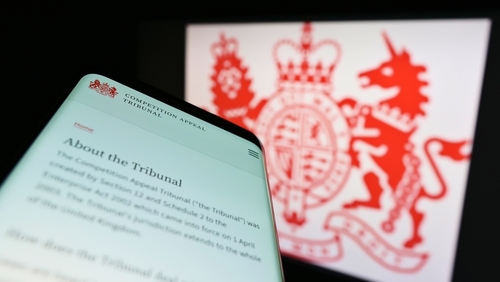Physical Address
304 North Cardinal St.
Dorchester Center, MA 02124
Physical Address
304 North Cardinal St.
Dorchester Center, MA 02124

The Competition Appeal Tribunal (CAT) says proceedings can go ahead against Vodafone, EE/BT, Three and O2 over alleged overcharging to mobile customers on combined handset-and-airtime contracts.
The case now moves toward trial. Combined claims could ultimately involve tens of millions of UK mobile customers and run into billions in alleged damages.
The ruling is a mixed outcome for the operators. All pre-2015 claims have been struck out, but the core case covering post-2015 conduct will proceed to a full trial. But it ruled that all pre-2015 claims have lapsed.

The applications, brought by proposed class representative Justin Gutmann, allege that the networks abused dominant positions in their respective retail mobile markets.
The claims focus on customers on combined handset and airtime (CHA) contracts who continued paying the same bundled monthly charge after their minimum term expired, despite having repaid the cost of the device.
Gutmann argues that this continued charging, above the equivalent SIM-only price, amounts to an unlawful “loyalty penalty”.
The case stems from longstanding concerns raised by consumer groups and Ofcom over bundled mobile contracts. Ofcom has repeatedly criticised operators for failing to reduce prices for out-of-contract customers and has introduced rules requiring providers to notify customers at contract expiry and offer SIM-only alternatives.
Gutmann’s case argues that millions of customers overpaid for years and that operators should have automatically switched them to SIM-only pricing once handsets were fully paid off. The four collective claims were filed two years ago under the Competition Act’s post-2015 class actions regime.
All four operators jointly applied to strike out claims relating to losses before 1 October 2015. They argued that such claims were time-barred under the Competition Appeal Tribunal Rules 2003, which imposed a two-year limitation period for claims arising before that date but filed later.

Gutmann countered that the 2003 Rules applied only to follow-on cases and that ordinary domestic limitation rules should govern standalone claims.
The Tribunal rejected this argument. It held that the transitional provisions in the 2015 Rules explicitly preserved the effect of rule 31 of the 2003 Rules. As a result, any standalone claims for losses occurring before 1 October 2015 were already out of time when proceedings were issued in November 2023. The Tribunal therefore struck out all pre-2015 claims.
Operators fail to strike out 2015 to 2017 claims
A second strike-out application, brought by Vodafone, EE/BT and Three, targeted losses said to have occurred between 1 October 2015 and 8 March 2017. The operators argued that customers could reasonably have discovered any alleged overcharging before November 2017, meaning the six-year limitation period had expired.
The Tribunal refused this Second Period Application. It found that the operators had filed the application without disclosing actual contract terms or customer communications. Without that evidence, the Tribunal could not conclude that customers were sufficiently on notice of a potential competition claim at an earlier date. The issue will therefore need to be tested at trial.
The Tribunal also approved Gutmann’s Collective Proceedings Orders (CPOs), finding that the proposed class definition, which covers customers who continued paying more than the applicable SIM-only price after minimum-term expiry, was sufficiently clear.
Operators challenged Gutmann’s litigation funding arrangements, questioning whether the funder could support the case. The Tribunal dismissed the challenge, finding no evidence that the funder would be unable to meet its obligations and rejecting additional concerns raised after publication of the funder’s financial statements.
The four actions will now move into detailed case management and disclosure.
Transcript of full ruling HERE